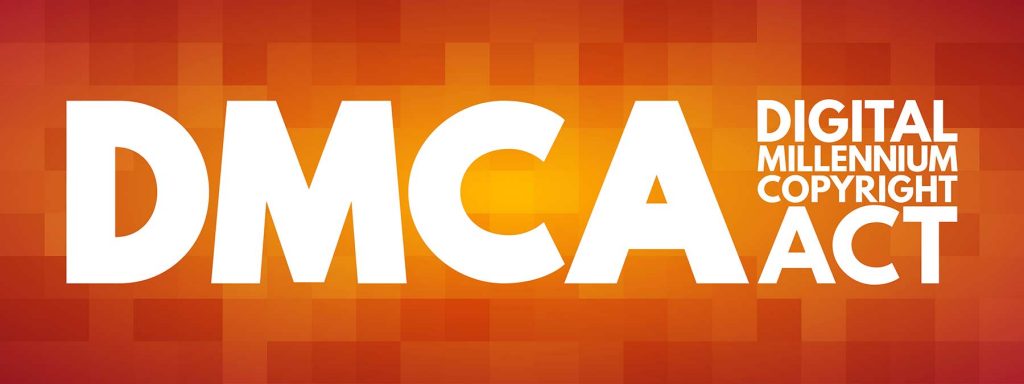Does The DMCA Need An Update?
Congress passed the Digital Millennium Copyright Act (DCMA) in 1998, providing much-needed changes to copyright laws. The development and availability of the internet changed the way people create, distribute, copy, and purchase creative work. Copyright laws needed to keep up with technology if they were to continue to protect the rights of artists, photographers, writers, and other creative professionals. Some individuals Congress think the DCMA is already in need of an overhaul because it is not keeping up with changes in technology.
What Are The Basics of Copyright Law?
Copyright basics remained unchanged by the DCMA. Copyright protection still exists the moment original works of authorship are fixed in a tangible medium of expression from which they can be “perceived, reproduced, or otherwise communicated, either directly or with the aid of a machine or device.” Works of authorship can include things such as:
- Sound recordings
- Video recordings
- Literary works such as books and poems
- Musical and lyrics
- Sculptures
- Photographs
- Paintings
- Motion pictures
- Sculptures
- Graphic
- Choreographed works
No part of US Copyright law protects ideas, facts, data, methods, or concepts.
What Does the DMCA Do?
The DMCA addresses some of the issues arising from new technologies that have made it more challenging for artists to retain control over their work. The ease of file-sharing, downloading, and reproducing work made it necessary for Congress to provide additional guidance and protections for artists and digital platforms.
Specifically, DMCA provides guidance on making “take-down” requests and holding internet platforms liable for posting unauthorized content. For example, when someone with a YouTube channel posts a video or uses a copyrighted photograph without a license or permission, the copyright holder can request the content be taken down, and the poster and YouTube might be liable for damages.
DMCA also offers “safe harbor” immunity under certain circumstances, limiting the secondary liability of internet platforms when users post unauthorized content.
Recent Changes to Copyright Law
One significant change related to copyright law is the Copyright Alternative in Small Claims Enforcement Act (CASE Act).
The CASE Act created a small claims tribunal to handle copyright infringement claims that relate to DMCA take-down procedures. The Copyright Claims Board is not yet operational but should be by the end of 2021.
Bringing a case before the board instead of filing a lawsuit in district court is voluntary. The CASE Act caps damages for claims brought before the board to 30,000.
Are More Copyright Law Changes Ahead?
Other changes to copyright law might be on the horizon. The Digital Copyright Act of 2021 is a proposal to “modernize US copyright law,” including DMCA, by amending key provisions addressing online infringement, among other things.
NC Senator Thom Tillis believes that current copyright law is “ill-suited” for the needs of most copyright holders and internet users. His office states, “Rather, than tinker around the edges of existing law, copyright modernization ought to reform the framework to better encourage the creation of copyrightable works and to protect users and consumers who are making lawful uses of copyrighted goods and software-enabled products, respectively.”
Under some of its key provisions, the Digital Copyright Act of 2021 could:
- Create liability limitations for good-faith users who try to locate the identity of a copyright holder but fail
- Provide copyright owners with a cause of action against a party for altering, removing, or replacing attribution information with the intent to conceal the identity of the copyright holder
- Move the Copyright Office under the Department of Commerce
- Replace the current notice and take-down system with a notice and stay-down system
- Decrease the level of specificity required for copyright owners to identify infringing material
Tillis summed up his perspective by stating, “The Digital Millennium Copyright Act was passed in 1998, and while it was revolutionary at the time, the law simply hasn’t kept pace with changes in technology. The DMCA is now antiquated and is past-due for modernization” In only 22 years since it was passed, the DMCA might be outdated.
Call The Sanders Law Group, if You Need Copyright Protection
At the Sanders Law Group, our lawyers help photographers, and other creative artists collect damages when someone violates their copyright. Call us today at (800) 979-3707 for a free evaluation of your copyright claim.



